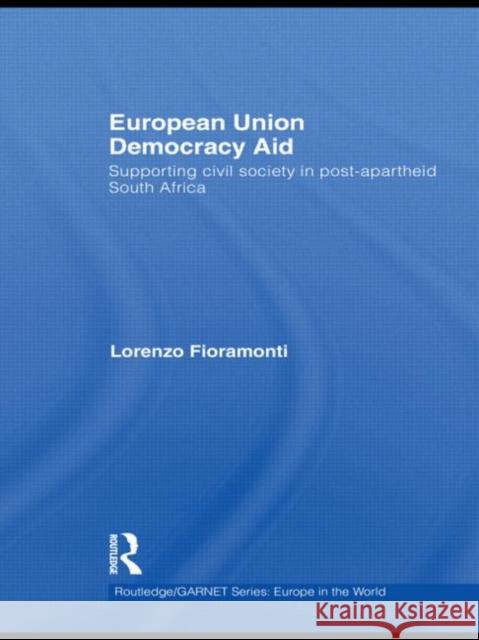European Union Democracy Aid: Supporting civil society in post-apartheid South Africa » książka
European Union Democracy Aid: Supporting civil society in post-apartheid South Africa
ISBN-13: 9780415548540 / Angielski / Twarda / 2009 / 176 str.
European Union Democracy Aid: Supporting civil society in post-apartheid South Africa
ISBN-13: 9780415548540 / Angielski / Twarda / 2009 / 176 str.
(netto: 695,40 VAT: 5%)
Najniższa cena z 30 dni: 705,23
ok. 22 dni roboczych
Bez gwarancji dostawy przed świętami
Darmowa dostawa!
Since the end of the Cold War, the promotion of democracy has occupied centre stage in global politics and in the academic debate on international relations. Governments, intergovernmental agencies, and international donors have invested significant resources to support the democratic consolidation of fledgling democracies. The European Union (EU), which is the largest aid donor in the world, has been no exception to this trend. This book focuses on the development aid provided by the EU to the South African democracy during its first ten years of life. EU Democracy Aid is the first book to empirically analyze the EU policy towards South Africa, which has been the most longstanding and comprehensive European democracy promotion initiative in a single country and an important test-bed for the EU's effectiveness and credibility as a global democracy promoter. Building on the EU's declared goal to promote democracy 'from below', this study explores the potential of micro-level projects aimed at 'deepening' democracy through grassroots civil society organizations operating in marginalized communities, where abusive and authoritarian practices often outlive the advent of democracy. It will be of interest to students and scholars of civil society, democracy, economics, development studies, European Union studies, political sociology and international relations.
This book explores the EU’s approach toward civil society since the 1990s and its contribution to democratisation from transition to consolidation, and from the quality of democracy to sustainable development.
This book provides the first systematic analysis of the EU’s policies in the field of civil society strengthening in new democracies and offers a different perspective on how democracy can be promoted and improved through the activities of civil society groups operating at the grassroots level. It empirically assesses the EU’s approach to democratic development in South Africa, which links citizens’ participation with socio-economic rights. Fioramonti analyzes how the EU strategy in South Africa has changed from the pre-apartheid era to the post-apartheid democratic dispensation, when civil society aid has been more specifically used to promote democratic consolidation and democratic ‘deepening’, especially in townships and rural areas.
It will be of interest to students and scholars of civil society, democracy, economics, development studies, European Union studies, political sociology and international relations.











